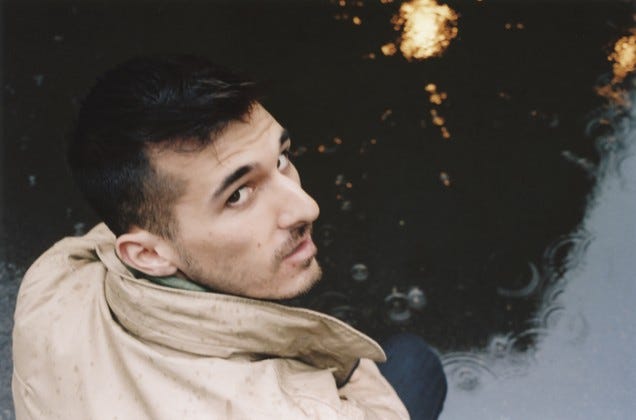Greg Luna, "MWM"

"MWM" explores the fears of homosexual men and the one place they're able to safely come out of the closet — the internet.
Told in documentary style, this short film follows a "married white male" and his double life spent crusing online "men seeking men" ads.
"MWM" plays at Indy Film Fest on Friday, July 23 at 9 p.m. You can buy tickets at www.indyfilmfest.org.
Director Greg Luna, a Brooklyn-based filmmaker, spoke with me about the inspiration behind this haunting film, the internet's place in society, and the evolution of gay cinema.
First, how did this film, "MWM" come about?
I stumbled upon "MWM" when I was working at Killer Films. I was doing research in New York Magazine for another project and came across David Amsden's article, "Married Man Seeks Same For Discreet Play." The premise alone was captivating to me. The article was a vivid reminder that not every gay experience is the same gay experience. The story is an honest representation of what it's like for a lot of men out there — especially in regards to the sort of gravitational pull that being stuck in the closet can have. The article really resonated, so I decided to adapt it into a short film. The protagonist, the MWM, was what initially drew me to the material, and what convinced me it would make a strong narrative film. I thought his sense of self-awareness and self-deceit was really compelling.
We live in an age in which everything is communicated through the seductive detachment of technology. "MWM" reflects that in its exploration of men who seek other men online. Seeking intimacy through a cold medium like the internet seems ironic, but then again, it's a place where some closeted gay people feel safe. It's also a place where people can express themselves freely and anonymously, thus making us question whether the web is really a cold, detached medium if it connects us with so many people. What are your thoughts regarding online communication?
Our access to information is so immediate now. The Internet is unique because it facilitates the process of expressing desires that may have previously been hidden. And people can connect in very specific ways, often times anonymously. It's very democratic. But I think it can be very isolating as well. There certainly is a level of detachment, and I think people often crave a more human connection. Because the Internet, and online communication, tends to fulfill needs in very particular ways — especially regarding sex.
Why do you think there haven't been more gay-themed films in mainstream cinema lately? They didn't seem to experience the expected boost in interest after "Brokeback Mountain."
Gay films aren't going to suddenly pop up at multiplexes but I think the definition of "mainstream" is beginning to shift. And a lot of this has to do with the audiences. Younger audiences are much more comfortable with gay-themed topics than their parents are. But it all comes down to story, I think. Part of the appeal to a film like "Brokeback Mountain" was its universality — it presented a very classic love story that was as "Casablanca" as it was modern. It provided an entry point to mainstream audiences that was genuine and engaging. Lisa Cholodenko's new film, "The Kids Are All Right" is in a very similar position — it has major mainstream appeal. A lot of people, parents especially, will relate to it because it's a film about marriage and family. They'll see their own families in it. And that's huge. I think the moment a straight audience member is able to share an affinity with a gay character is the break-through moment.
How do you think gay cinema has evolved over the years?
Gay cinema is still seen as very "niche" and kind of fringe. The trajectory of gay cinema is interesting though — some of the most successful gay filmmakers like Gus Van Sant and Todd Haynes often work outside of their avant garde roots. But that's part of the evolution, I think. There's no one type of "gay" film. There's a huge amount of storytelling diversity.
What are your expectations for the "MWM" screening at the Indy Film Fest?
I'm excited for "MWM" to find a new audience. Indy Film Fest is the film's first screening outside of New York and Los Angeles, and I couldn't be more thrilled. I hope the film is able to reach people who might normally be quick to judge men in these situations. The film certainly doesn't prohibit judgment. But it doesn't deny empathy either. It's a huge challenge to try to understand something that seems scary or unknown, but that's part of the goal of storytelling and documentary-form — to step inside a different experience.


